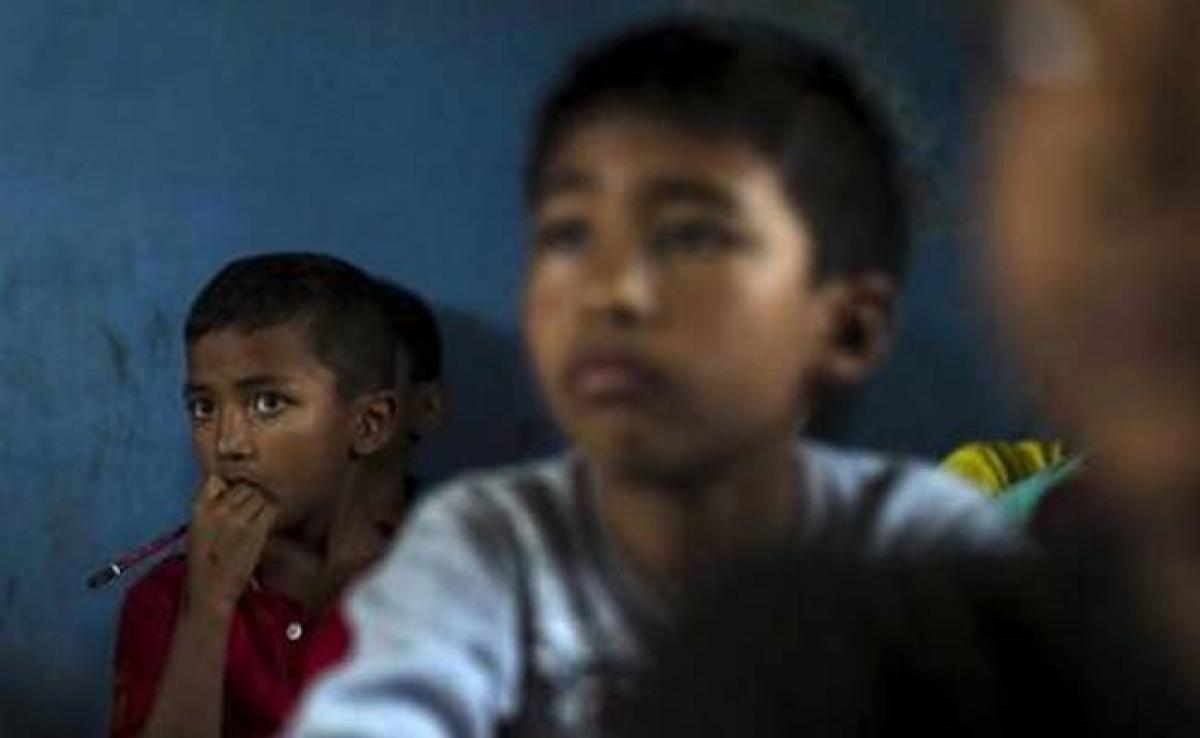Live
- Kerala mulls increasing retirement age of govt employees to 57
- Credit, deposit growth now in line with each other in India: Report
- Very 'productive' meeting with PM Modi, says British PM Starmer
- Actor Satyadev in Bengaluru to promote Zebra movie
- Vijaya Chaitanya Palanki Leads the Development of Advanced Data Analytics Algorithms for Upsell Scoring, Churn Prediction, and Promotion Management
- Wanaparthy collector says Prajapalana Vijayotsava kaka yatra from 19 Nov to 7 Dec
- Hamas says security operation kills 20 aid truck looters
- Flipkart Mobiles Bonanza Sale: Top 5 Smartphone Deals with Great Discounts
- Supreme Court Issues Notices to YS Avinash Reddy in YS Viveka murder case
- Delhi minister writes to Centre, requests NOC for cloud seeding
Just In

x
Highlights
Children in earthquake-hit Nepal are more at risk of trafficking and exploitation or of being sent unnecessarily or illegally to live in orphanages since the first quake struck in April, the UN children\'s fund (UNICEF) said on Friday.
Children in earthquake-hit Nepal are more at risk of trafficking and exploitation or of being sent unnecessarily or illegally to live in orphanages since the first quake struck in April, the UN children's fund (UNICEF) said on Friday.

Hundreds of thousands of families lost their homes after two earthquakes struck on April 25 and May 12, killing some 8,800 people and raising concerns among rights groups that trafficking rings in the region would take advantage of the chaos.
Thousands of Nepali children are trafficked into India every year to work in prostitution and as child labourers, and the situation may worsen as traffickers target newly vulnerable children and families following the earthquakes, UNICEF said.
Families may also be more easily convinced to send their children to orphanages in Nepal, putting them at risk of poorly-regulated adoption, exploitation and abuse, the UN body said.
Some 15,000 children lived in child care homes in Nepal prior to the first earthquake, yet more than eight in 10 of them had at least one living parent, according to UNICEF.
"Loss of livelihoods and worsening living conditions may allow traffickers to easily convince parents to give their children up for what they are made to believe will be a better life," said UNICEF Nepal Representative Tomoo Hozumi.
"The traffickers promise education, meals and a better future. But the reality is that many of those children could end up being horrendously exploited and abused," Hozumi said.
UNICEF said it was working with the police at 84 checkpoints and police stations across Nepal, and with local organisations to create transit centres for trafficking victims and establish interception points along the borders with India and China.
Deterring Traffickers
Nepal last month banned children under 16 from travelling without parents or approved guardians in an unprecedented move to deter human traffickers, and suspended international adoption to prevent children with living parents from being adopted.
Some 245 children have been saved from traffickers or being sent to live in orphanages unnecessarily or illegally since the first quake struck, UNICEF said.
The children rescued to date had been travelling with strangers who did not have an authorisation letter from the authorities, according to Radhika Aryal, an official at the Ministry of Women, Children and Social Welfare in Nepal.
"We will send back all children to their parents or families as far as possible," she told the Thomson Reuters Foundation.
"The children can be taken to child care homes only if the families are unable to take care of them or parents cannot be traced... this (child care homes) is only a last resort."
The registration of new orphanages has also been suspended, and UNICEF said it was concerned about so-called "orphanage voluntourism" - where families around the world wish to help children in Nepal through adoption or orphanages visits.
Some 40 national and international agencies that recruit volunteers for orphanages in Nepal have been encouraged to discontinue their volunteering programmes, and eight have already suspended their schemes, according to UNICEF.
"In some cases children are deliberately separated from their families and placed in orphanages so they can be used to attract adoptive families, fee-paying volunteers and donors," Hozumi said in a statement.

Next Story
More Stories
ADVERTISEMENT
© 2024 Hyderabad Media House Limited/The Hans India. All rights reserved. Powered by hocalwire.com







